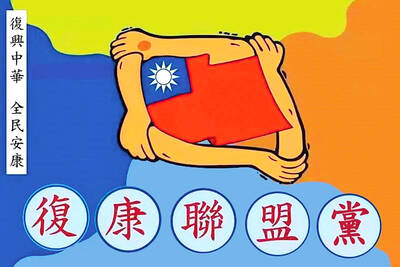Taiwan Pineapple Group vice-chairman Huang Tsung-hung (
In his letter, Huang said that his donations were similar to the Chen Yu-hao (
The first incident transpired in 1998, when Huang gave NT$100 million to the KMT as a political donation to prevent the stock price of Taiwan Pineapple from falling.
"I invited Liu Tai-ying (劉泰英) to use the KMT's money to help boost Taiwan Pineapple's stock price. Liu told me that as the legislative elections were approaching, I should pay the KMT NT$160 million as `donation' money. In reality, what I paid was about NT$100 million," wrote Huang.
The second incident took place in 1999, when former Pintung County Commissioner and current Legislator Wu Tse-yuan (
"Due to the downswing of the real estate market, many of the projects that Taiwan Pineapple was working on were in financial crisis, and I needed to get some immediate financial assistance. Wu offered to help me get a loan of NT$3 billion from a state-run bank, via KMT Chairman Lien Chan's (
According to Huang's letter, the state-run bank turned out to be Chang Hwa Commercial Bank (彰化銀行) and the then bank chairman, Tsai Mao-hsing (蔡茂興), said out that 20 percent of the kickback would be used for Lien's presidential election campaign.
Huang wrote an NT$600 million check to Wu and got the loan from the bank.
In response to the allegations, KMT spokesman Alex Tsai (
"It is a calculated set-up," said KMT policy convener Tseng Yung-chuan (

AIR DEFENSE: The Norwegian missile system has proved highly effective in Ukraine in its war against Russia, and the US has recommended it for Taiwan, an expert said The Norwegian Advanced Surface-to-Air Missile Systems (NASAMS) Taiwan ordered from the US would be installed in strategically important positions in Taipei and New Taipei City to guard the region, the Ministry of National Defense said in statement yesterday. The air defense system would be deployed in Taipei’s Songshan District (松山) and New Taipei City’s Tamsui District (淡水), the ministry said, adding that the systems could be delivered as soon as the end of this year. The US Defense Security Cooperation Agency has previously said that three NASAMS would be sold to Taiwan. The weapons are part of the 17th US arms sale to

SERIOUS ALLEGATIONS: The suspects formed spy networks and paramilitary groups to kill government officials during a possible Chinese invasion, prosecutors said Prosecutors have indicted seven retired military officers, members of the Rehabilitation Alliance Party, for allegedly obtaining funds from China, and forming paramilitary groups and assassination squads in Taiwan to collaborate with Chinese troops in a possible war. The suspects contravened the National Security Act (國家安全法) by taking photos and drawing maps of key radar stations, missile installations and the American Institute in Taiwan’s headquarters in Taipei, prosecutors said. They allegedly prepared to collaborate with China during a possible invasion of Taiwan, prosecutors said. Retired military officer Chu Hung-i (屈宏義), 62, a Republic of China Army Academy graduate, went to China

INSURRECTION: The NSB said it found evidence the CCP was seeking snipers in Taiwan to target members of the military and foreign organizations in the event of an invasion The number of Chinese spies prosecuted in Taiwan has grown threefold over a four-year period, the National Security Bureau (NSB) said in a report released yesterday. In 2021 and 2022, 16 and 10 spies were prosecuted respectively, but that number grew to 64 last year, it said, adding that the Chinese Communist Party (CCP) was working with gangs in Taiwan to develop a network of armed spies. Spies in Taiwan have on behalf of the CCP used a variety of channels and methods to infiltrate all sectors of the country, and recruited Taiwanese to cooperate in developing organizations and obtaining sensitive information

BREAKTHROUGH: The US is making chips on par in yield and quality with Taiwan, despite people saying that it could not happen, the official said Taiwan Semiconductor Manufacturing Co (TSMC, 台積電) has begun producing advanced 4-nanometer (nm) chips for US customers in Arizona, US Secretary of Commerce Gina Raimondo said, a milestone in the semiconductor efforts of the administration of US President Joe Biden. In November last year, the commerce department finalized a US$6.6 billion grant to TSMC’s US unit for semiconductor production in Phoenix, Arizona. “For the first time ever in our country’s history, we are making leading edge 4-nanometer chips on American soil, American workers — on par in yield and quality with Taiwan,” Raimondo said, adding that production had begun in recent